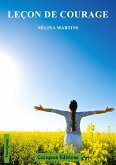
14,99 €
Versandfertig in 1-2 Wochen

Broschiertes Buch
Crecimiento en condiciones de vacío y competencia con la microbiota láctea nativa y añadida
25. April 2023
Ediciones Nuestro Conocimiento
Gebundenes Buch
1. Auflage
25. April 2016
De Gruyter
Ähnlichkeitssuche: Fact®Finder von OMIKRON
